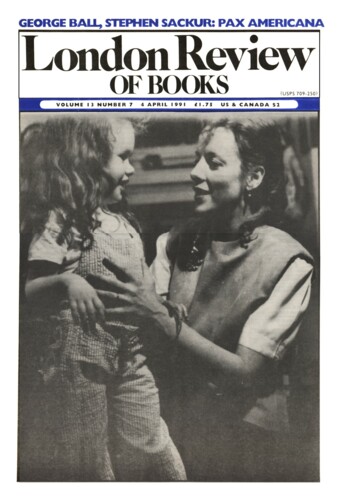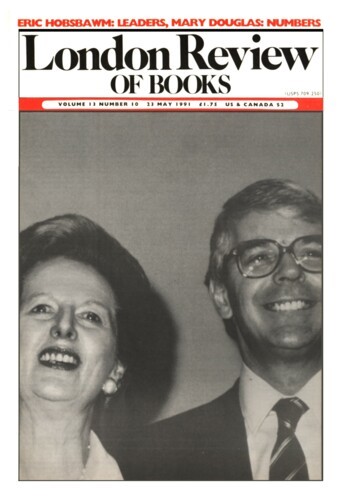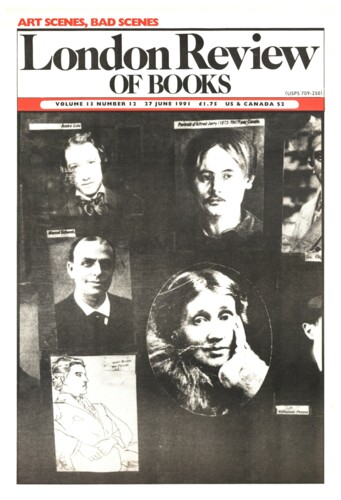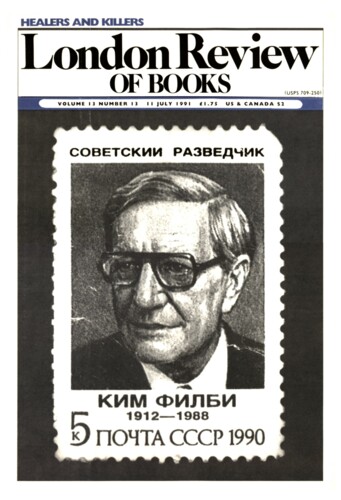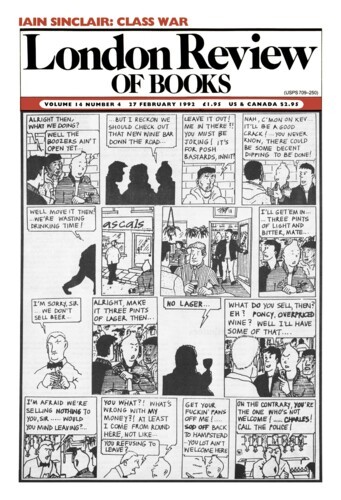Diary: Maximum Force
Stephen Sackur, 4 April 1991
Major-General Rupert Smith, commander of the British First Armoured Division, was sitting with a mug of tea by his side at the table from which he had directed his troops during the ground offensive. The map on the table told its own story: symbols and arrows indicated the swathes of territory occupied by Allied troops in the previous one hundred hours, not only in Kuwait, but deep inside Iraq as well. The General had summoned me to his side in this hour of victory. That very morning President Bush had announced a cessation of offensive operations and the other Coalition members had rapidly followed his lead. Having made a headlong dash through southern Iraq, the British Division had come to rest in northern Kuwait. Little more than four days after it had begun the ground war was over.
